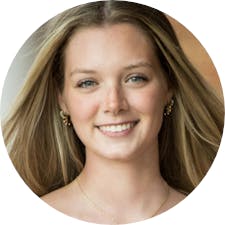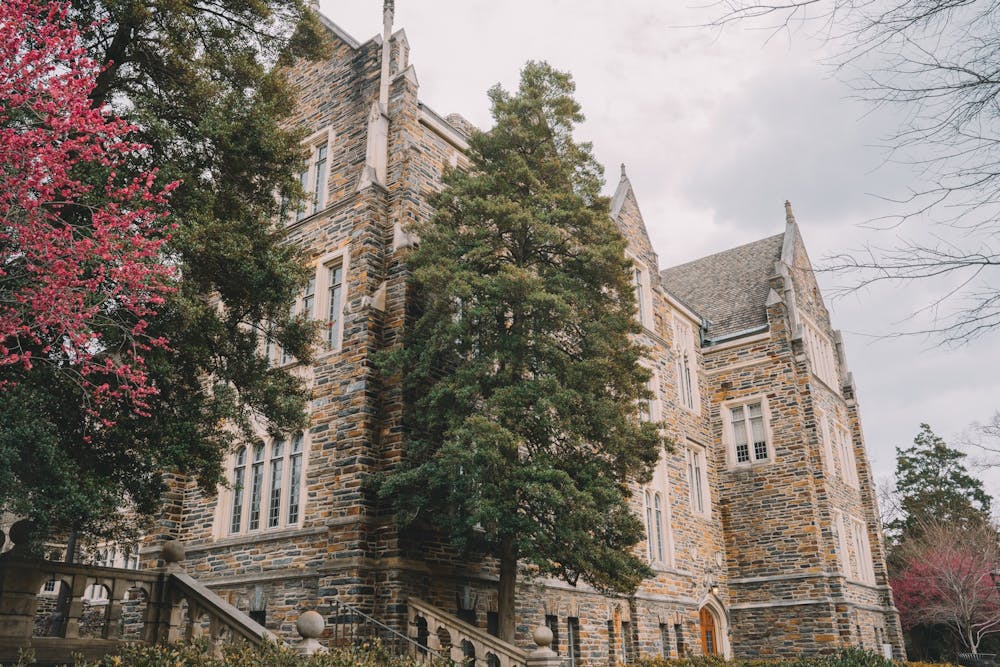The Arts & Sciences Council approved a new journalism and media minor and heard annual reports from the Global Education Committee and the Faculty-Student Interactions Committee in its last meeting of the academic year.
The Council also discussed and approved changes to its bylaws.
Journalism and media minor approved
Following its discussion from its April meeting, the Council voted unanimously to approve the new journalism and media minor through the Dewitt Wallace Center for Media and Democracy, a branch of the Sanford School of Public Policy.
The new minor will replace the current policy, journalism and media studies certificate so that “there’s no requirement to take courses outside the Dewitt Wallace Center,” according to Professor of Physics Joshua Socolar, who is chair of the Council.
Certificate programs require that no more than half of the courses that students take to fill the certificate requirements originate from the same department, since Trinity certificate programs are designed to be interdepartmental in nature.
“There’s a lot of students who are very interested in doing the journalism certificate,” but who are “frustrated” that the certificate requires several courses outside the Dewitt Wallace Center, said Corinne Krupp, associate dean for academic programs and professor of the practice at the Sanford School of Public Policy. Students want to take courses “with practitioners and journalists,” she added.
Starting in the fall of 2023, both the new minor and the certificate will be offered to students, who will be able to pursue one but not both. After three years, only the minor will be offered.
Global Education Committee presents annual report
Research Professor of Literature Anne Garréta provided the Council with an annual report from the Global Education Committee, which she chairs. The committee oversees all credit-bearing programs taking place away from campus, including Duke-In programs and academic exchange programs.
The committee decided to reshape the process and timeline for study-abroad project proposals so that they will be able to collaborate with faculty during the process of proposal development, instead of only reviewing the final proposals.
Garréta emphasized during her presentation that “it is the job of the faculty to evaluate and to sanction what goes on to the transcript of our undergraduates” and was met with concerns from faculty.
Paul Jaskot, professor of art, art history and visual studies, expressed that it is often difficult for faculty to assign credit to courses offered abroad because they are not provided with a syllabus with which to evaluate the course.
Catherine Admay, senior lecturer in the Sanford School of Public Policy, echoed Jaskot’s sentiment, adding that assigning credit to independently petitioned student programs poses “a real problem” for faculty members.
Garréta responded by saying that any petitions that are “outside the directly Duke administered programs” or “outside of the list of recognized academic exchange programs gets hyper scrutiny from the committee,” relieving the pressure on departmental faculty members. “It’s layers of review,” she said.
Next year, the committee plans to “review the existing portfolio of programs administered by Duke” in order to identify gaps in programming and evaluate current programs both quantitatively and qualitatively.
Faculty Student Interactions Committee presents annual report
Lee Baker, professor of cultural anthropology and chair of the Faculty-Student Interaction Committee, presented its annual report. According to Baker, the committee “concerns itself with enhancing advising and other faculty encounters with undergraduate students outside of the formal classroom.”
In his presentation, Baker proposed the idea of a type of “reverse Flunch,” in which faculty members would be able to attend their students’ athletic events for free. Christina Williams, professor of psychology and neuroscience, suggested that this opportunity also be offered for students’ artistic or musical performances and athletic events, and Baker agreed.
Baker also proposed bringing back “faculty-student interaction funds” with which faculty members would be able to take their students to movies, museums or other events using Duke funds. According to Baker, these funds used to exist but have “somehow disappeared.”
Get The Chronicle straight to your inbox
Sign up for our weekly newsletter. Cancel at any time.
The committee also plans to bring forward a resolution to recognize faculty, such as “faculty of color and women in STEM,” who “disproportionately engage in the invisible labor of mentoring,” Baker said. “We know that it's just symbolic, but nevertheless, we believe it's important.”
Preview for the fall
At the end of the meeting, Socolar presented Council members with a preview of what to expect next fall.
“What I’m expecting is that our year is going to be dominated by discussion and hopefully approval of a new curriculum for Trinity College undergraduates,” he said.
The Council will hear “at least two progress reports from the Trinity Curriculum Development Committee in the fall” and then will have the opportunity to offer feedback, according to Socolar.
The Council expects to receive a concrete proposal in early 2024, with the aim of voting on that proposal in April. After the vote, Trinity College will either switch to the new curriculum or keep in place the current Curriculum 2000.
In other business
Socolar presented the Council with proposed changes to the Arts & Sciences Council bylaws, which were then approved. According to Socolar, the changes mostly involve “reorganization and clarification of existing bylaws along with a few other changes that simply recognize the validity of our current modes of operation.”
Substantive changes to the bylaws include removing the term “Faculty of Arts and Sciences” because the Council includes faculty members from schools other than Trinity College, including the Nicholas School of the Environment and the Sanford School of Public Policy; giving departments more autonomy over their methods of electing representatives; adding clauses addressing the possibility of vacancies on the Executive Committee of the Arts and Sciences Council and adjusting the start of Council members’ terms.

Holly Keegan is a Trinity junior and a senior editor of The Chronicle's 120th volume.

